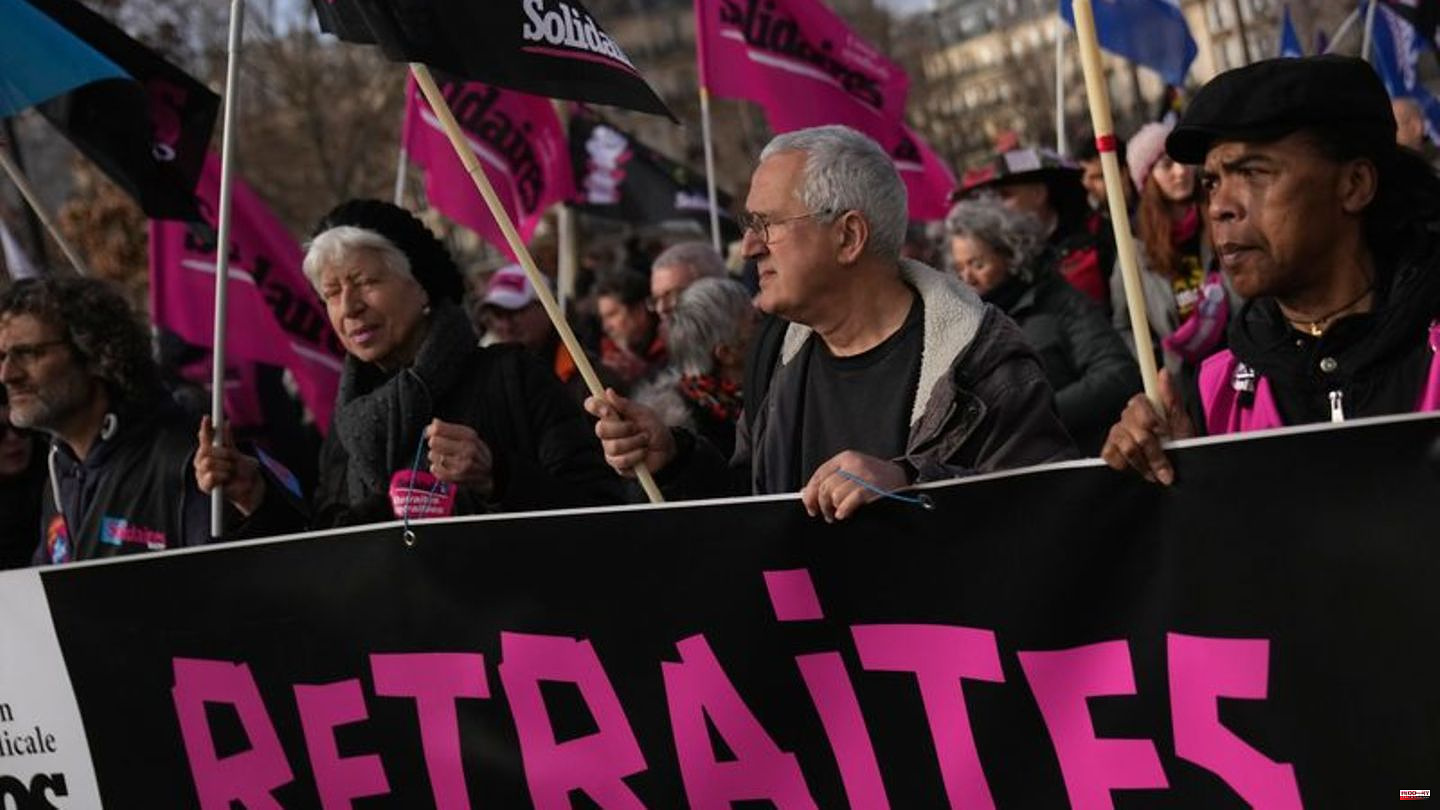According to the authorities, around 440,000 people across the country took to the streets in France on Thursday against the planned pension reform. There were demonstrations in cities like Marseille, Rennes and Bordeaux. People laid down their jobs at airports, in the energy sector and on the railways. The central government under President Emmanuel Macron wants to gradually raise the retirement age from 62 to 64. The unions consider this brutal and unfair.
According to official figures from the Interior Ministry, more than a million people took to the streets earlier in the day. The trade unions even spoke of well over two million. Because there are currently school holidays in many French regions, lower participation was expected overall on Thursday.
Currently, the retirement age is 62 years. In fact, retirement begins later on average: those who have not paid in long enough to be entitled to a full pension work longer. At the age of 67 there is a pension without any deductions, regardless of how long you have paid in - the government wants to keep this, even if the number of years of payments required for a full pension is to increase more quickly. She wants to increase the monthly minimum pension to around 1,200 euros.
Central project for Macron
The pension reform is considered one of Macron's central projects. The left camp and France's right-wing nationalists oppose it. The government hopes to get them through parliament with the votes of the conservative Républicains. But there is still no majority.
The government suffered its first setback on Wednesday night because a majority of the members of the National Assembly voted against an article of the reform. Most Républicains also voted against it. This does not mean that they will vote against the entire project.
The National Assembly as the lower house has until Saturday night to deliberate. With more than 20,000 amendments tabled, MEPs are unlikely to complete the scrutiny. Now a number of motions are to be withdrawn in order to at least debate the core. After the deadline, the project will go to the Senate, the second chamber of Parliament, in an accelerated procedure - with or without a prior vote in the National Assembly.












